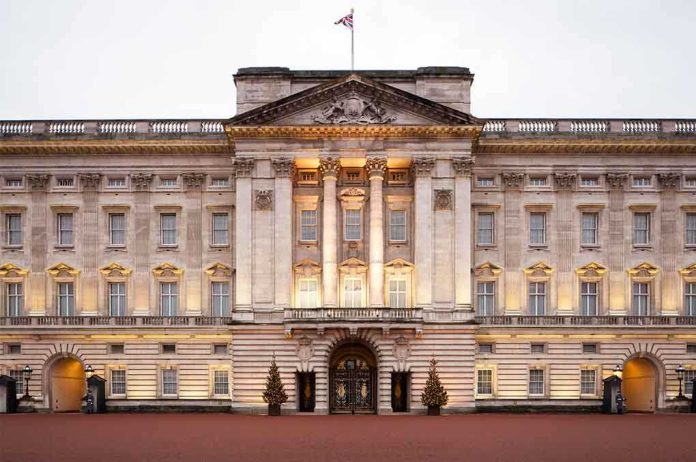
A prince born to privilege, toppled not by war or politics, but by the collective voice of public outrage—can any royal ever truly be untouchable again?
Story Snapshot
- Prince Andrew’s royal titles and public roles were stripped following his association with Jeffrey Epstein.
- King Charles III’s decisive intervention broke with centuries of royal tradition.
- The monarchy faced unprecedented scrutiny, fueling demands for transparency and accountability.
- This watershed moment redefined the public’s expectations of royal conduct and consequences.
The Royal Shield Shattered: A Timeline of Scandal and Consequence
Prince Andrew’s downfall did not happen overnight. From the moment his friendship with Jeffrey Epstein surfaced in the early 2010s, the public watched with a mix of fascination and disbelief. What began with questionable business deals and public missteps evolved into a story of international scandal, culminating in the irrevocable loss of royal privilege. The timeline reads like a cautionary tale: Andrew’s resignation as trade envoy in 2011, the explosive aftermath of Epstein’s 2019 arrest, and the disastrous BBC interview that made him the subject of ridicule and outrage. Each miscalculation chipped away at the royal shield, setting the stage for King Charles III’s historic decision in 2025 to strip his brother of all remaining royal titles and duties.
This was not the monarchy’s usual method of dealing with scandal. British royals have long relied on privacy and behind-the-scenes maneuvering to maintain their public image. But as the Epstein case grew, so did the demands for answers. The #MeToo movement and a relentless media spotlight made it impossible for Buckingham Palace to rely on old tactics. Andrew’s case became the first in modern history where a senior royal was publicly stripped of titles for alleged criminal associations, signaling a seismic shift in royal accountability and public expectation.
The Players and the Power Struggle Within the Palace
The central figures in this drama were as remarkable as the events themselves. Andrew, once the Queen’s favored son, saw his reputation decimated as accusers like Virginia Giuffre stepped forward with harrowing allegations that he has consistently denied. King Charles III, tasked with preserving the monarchy’s integrity, made a move that would have been unthinkable in his mother’s reign. No longer could palace walls contain the fallout—public opinion had become a force too powerful to ignore. Advisors and legal teams wrestled with the implications, weighing tradition against necessity, as the media and public clamored for justice and reform.
The monarchy’s internal hierarchy was tested as never before. Charles’ decision to act decisively—removing his brother’s titles and banishing him from royal duties—demonstrated an awareness of the changing nature of power. Influence now flowed not just from the crown, but from the court of public opinion. The British people, along with the global audience, demanded not just statements but action, forever altering the dynamics of royal crisis management.
Aftermath and the New Reality for the Monarchy
By 2025, Prince Andrew was not just sidelined—he was erased from the fabric of royal life. Official statements from Buckingham Palace confirmed the end of his public roles and the loss of every last title. Andrew, for his part, persists in denying all allegations, but his days of representing the crown are over. The monarchy, bruised and battered, faces a future where transparency is no longer optional and the cost of misjudgment is permanent exclusion.
The impact stretches far beyond palace gates. The royal family’s reputation has suffered, with consequences for public trust, charitable work, and even the economic benefits associated with royal tourism. Victims and advocacy groups see a precedent for accountability where once there was only impunity. Legal experts point to the power of public pressure in overcoming the obstacles of prosecuting the privileged, while historians and sociologists mark this as a turning point—a monarchy forced to adapt or risk irrelevance. Debate continues: Was the crown’s response too late, or was it the necessary reckoning that tradition always resisted? One thing is certain: the era of consequence-free royalty is over, and the world is watching for what comes next.
Sources:
1News: A Timeline of Prince Andrew’s Decades-Long Antics and Scandals
ABC News: Prince Andrew’s Antics, Scandals Tested Royal Patience for Decades
Wikipedia: Prince Andrew & the Epstein Scandal




